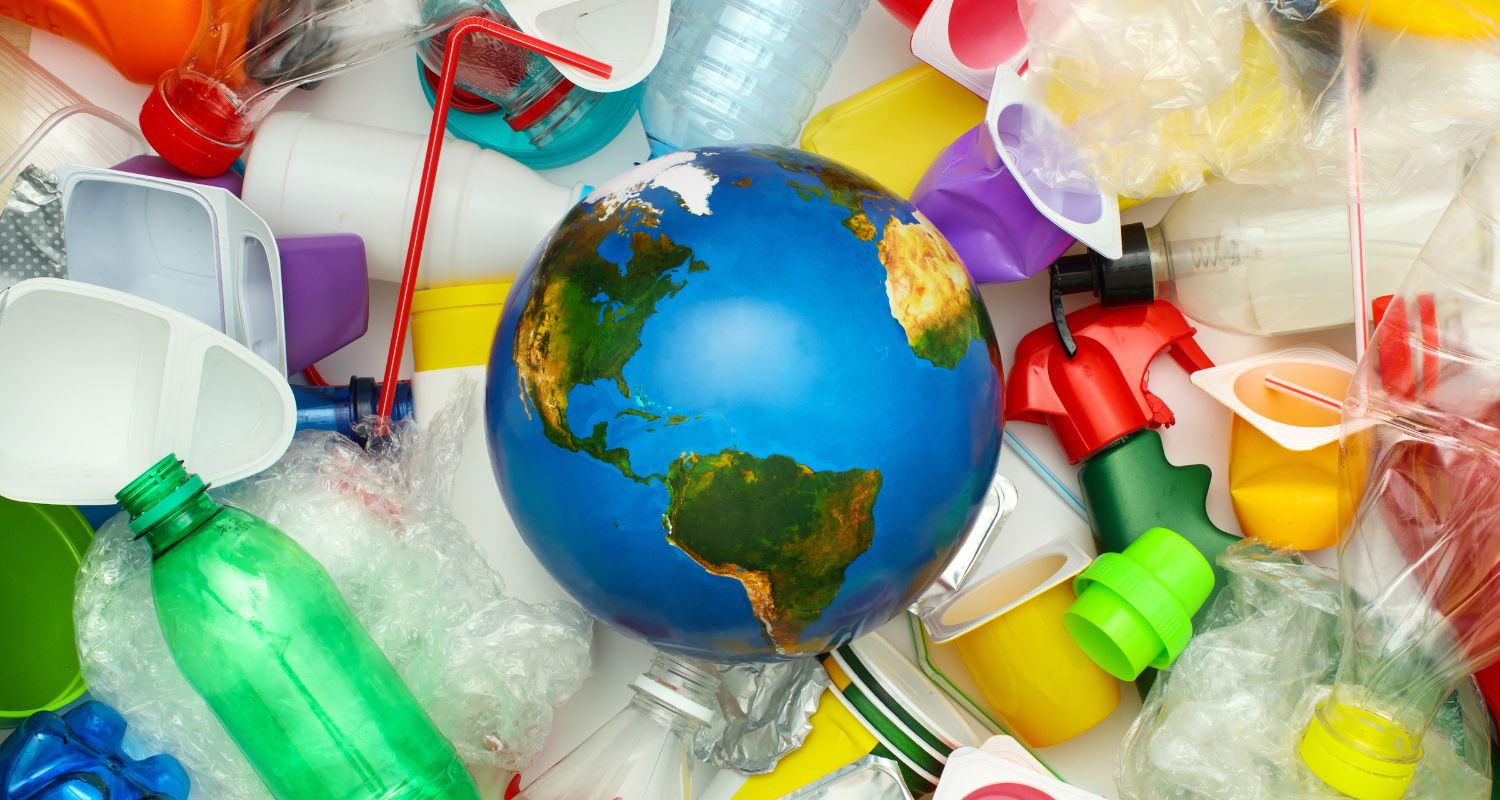
Season 5, Post 40: Plastic not so fantastic
Think, as you read this piece, how much plastic you have already touched today. It’s ubiquitous, from your bottle of shower gel through to your food storage containers. It may well feature in the pen with which you write, or in the clothes you wear. One truckload of it is also dumped into the ocean every minute of the day. By 2050, there may be more plastic by weight in the ocean than fish. The topic has been a concern of ours since 2018. The good news is that there is progress being made.
Since the start of October, single-use plastic cutlery has been banned in the UK. Figures from the government show that over 1bn single-use plates and more than 4bn pieces of plastic cutlery are used in England every year. This initiative is part of the country’s broader plan to eliminate all avoidable plastic waste by 2042. The UAE has announced a similar goal, effective from 2026. Even more encouragingly, the region will ban single use plastic shopping bags from the start of next year. The US, which has been a relative laggard in implementing plastic reduction measures is close to finalising plans to phase out single-use plastics on public lands, such as national parks and wildlife refuges.
Initiatives such as these matter, particularly since less than 10% of all plastic enters a recycling plant. If it doesn’t end up in the sea, then most likely it is incinerated. This outcome is a bad one. The carbon contained within the plastic is released into the air, as well as any other noxious chemicals with which it might be mixed. Plastic-eating bacteria may be the solution. Work on this topic first started in 2001. Peer-reviewed scientific papers and trials have followed in France, Japan and the US. Several large companies such as Nestlé and L’Oréal have participated. While encouraging, the challenge remains how to scale initially promising outcomes to deal with the magnitude of waste produced. Nonetheless, every initiative helps.
Finally, if plastic progress is not pleasing enough, then how about giving trees a voice? This novel development could also help make the world a better place. The idea is simple. Attach a device about the size of a TV remote to a tree and then monitor its health. The end-result – where “nature meets tech”, per its creators (ePlant, a Canadian start-up) – is to create an internet of trees. In this world view, the impacts of climate change can be better monitored and potentially mitigated, through different genetic varieties potentially being planted in the future. The proposition (which comes with an annual subscription fee of $50 per ‘TreeTag’) is only available on a commercial basis currently. A consumer version may follow.
25 October 2023
The above does not constitute investment advice and is the sole opinion of the author at the time of publication. Past performance is no guide to future performance and the value of investments and income from them can fall as well as rise.
Click here to view all Blog posts.
Alex Gunz, Fund Manager
Disclaimers
The document is provided for information purposes only and does not constitute investment advice or any recommendation to buy, or sell or otherwise transact in any investments. The document is not intended to be construed as investment research. The contents of this document are based upon sources of information which Heptagon Capital LLP believes to be reliable. However, except to the extent required by applicable law or regulations, no guarantee, warranty or representation (express or implied) is given as to the accuracy or completeness of this document or its contents and, Heptagon Capital LLP, its affiliate companies and its members, officers, employees, agents and advisors do not accept any liability or responsibility in respect of the information or any views expressed herein. Opinions expressed whether in general or in both on the performance of individual investments and in a wider economic context represent the views of the contributor at the time of preparation. Where this document provides forward-looking statements which are based on relevant reports, current opinions, expectations and projections, actual results could differ materially from those anticipated in such statements. All opinions and estimates included in the document are subject to change without notice and Heptagon Capital LLP is under no obligation to update or revise information contained in the document. Furthermore, Heptagon Capital LLP disclaims any liability for any loss, damage, costs or expenses (including direct, indirect, special and consequential) howsoever arising which any person may suffer or incur as a result of viewing or utilising any information included in this document.
The document is protected by copyright. The use of any trademarks and logos displayed in the document without Heptagon Capital LLP’s prior written consent is strictly prohibited. Information in the document must not be published or redistributed without Heptagon Capital LLP’s prior written consent.
Heptagon Capital LLP, 63 Brook
Street, Mayfair, London W1K 4HS
tel +44 20 7070
1800
email london@heptagon-capital.com
Partnership No: OC307355 Registered in England and Wales Authorised & Regulated by the Financial Conduct Authority
Heptagon Capital Limited is licenced to conduct investment services by the Malta Financial Services Authority.

Receive the updates
Sign up to our monthly email newsletter for the latest fund updates, webcasts and insights.

.png)
